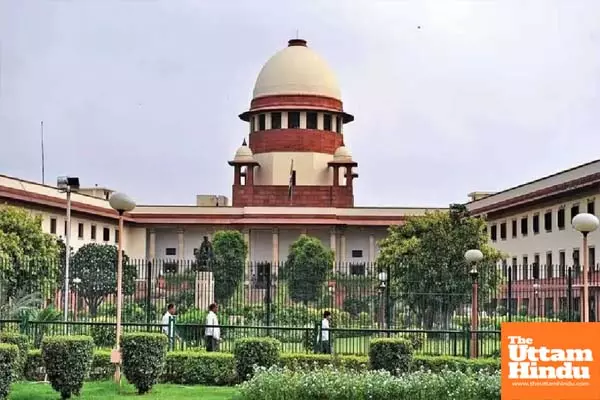
No New Mandir-Masjid Cases Allowed, Supreme Court Rules

New Delhi(The Uttam Hindu): On December 12, the Supreme Court of India issued a significant ruling regarding the ongoing Mandir-Masjid legal disputes, particularly those challenging the validity of the 1991 Places of Worship Act. A three-judge bench, headed by Chief Justice Sanjiv Khanna, ruled that no new lawsuits can be filed concerning the status of places of worship until the matter is further heard in court. However, the bench clarified that ongoing cases, such as those related to the Gyanvapi Mosque in Varanasi and the Shahi Idgah Mosque in Mathura, will continue.
The case revolves around petitions challenging the 1991 law, which prohibits any legal claims or efforts to change the religious character of places of worship as they stood on August 15, 1947. The law was enacted to maintain communal harmony and protect the secular fabric of the nation, by preventing disputes over places of worship.
However, the 1991 Act has been a source of significant controversy. Several petitions, particularly concerning the Gyanvapi Mosque and the Shahi Idgah Mosque, claim that these structures were built over demolished Hindu temples and are seeking permission for Hindus to offer prayers at these sites. Supporters of these petitions argue that the law infringes on the rights of Hindus, Jains, Buddhists, and Sikhs to reclaim religious sites that were allegedly destroyed during historical periods of conquest.
On the other hand, opposition parties, including the Congress, defend the law as essential to preserving India’s secular identity, claiming that any changes to the law would disrupt social harmony and threaten national unity. The Supreme Court’s decision to halt new lawsuits for now underscores the sensitivity of these issues and the need for careful legal deliberation on matters that have long historical and religious implications for the country.

